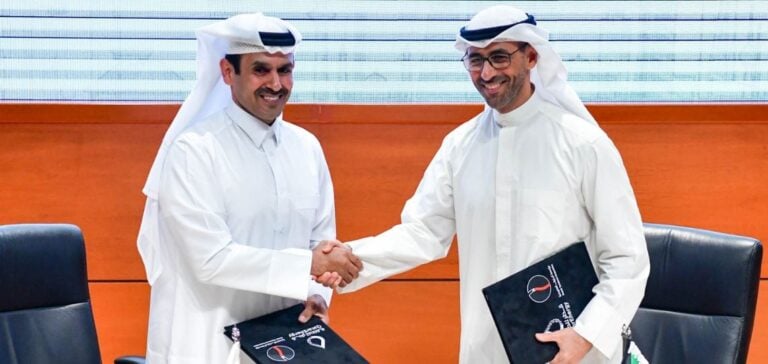Kuwait Petroleum Corporation (KPC) has signed a new agreement with QatarEnergy for the supply of liquefied natural gas (LNG) over a 15-year period. This commitment, the second in two years, provides for the annual delivery of 3 million tonnes of LNG to the Al Zour terminal.
The contract is designed to meet Kuwait’s soaring energy consumption, which requires reliable, long-term solutions.
The LNG volumes will be transported by the Q-Flex and Q-Max LNG carriers.
This initiative is part of a broader strategy to secure energy supplies, as Kuwait faces growing challenges linked to rising domestic demand.
The Qatari Minister of Energy, Saad al-Kaabi, is personally visiting Kuwait to formalize this agreement, underlining the importance of this bilateral cooperation.
LNG as a response to growing demand
The use of LNG in Kuwait is a response to the growing need to diversify energy sources and ensure a continuous supply of electricity.
Since 2009, the country has been importing LNG, supplementing its traditional resources to meet peaks in consumption, particularly during the summer months.
The Al Zour terminal, key to this infrastructure, is already receiving significant volumes under a previous contract signed in 2022.
By pursuing this import policy, Kuwait Petroleum Corporation is ensuring its ability to meet the country’s energy needs while limiting the risk of shortages.
The agreement with QatarEnergy, while not new, reinforces this strategy, positioning LNG as an essential pillar of Kuwait’s energy security.
QatarEnergy continues to expand in the LNG sector
QatarEnergy, a major player in the LNG market, continues to increase its production to meet global demand.
The expansion of its projects, both locally with the North Field and in the USA via Golden Pass, illustrates its ability to supply substantial volumes over the long term.
The new agreement with Kuwait is part of this expansion dynamic.
The instability of LNG prices on Asian markets accentuates the importance of long-term contracts, guaranteeing stable supply for customers like Kuwait.
By securing this agreement, Kuwait Petroleum Corporation is protecting itself against market fluctuations, ensuring the stability needed for national energy planning.






















